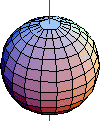Predicting the Position of a Rotating System: Difference between revisions
Awhitacre7 (talk | contribs) No edit summary |
Awhitacre7 (talk | contribs) No edit summary |
||
| Line 27: | Line 27: | ||
==Connectedness== | ==Connectedness== | ||
===Industrial Application=== | |||
[[File:World_of_Color_overview.jpg|thumb|left|200px|Ferris wheel at Disney World.]] | [[File:World_of_Color_overview.jpg|thumb|left|200px|Ferris wheel at Disney World.]] | ||
[[File:Stlouisflags.jpg|thumb|right|200px|Ferris wheel at Six Flags(St. Louis).]] | [[File:Stlouisflags.jpg|thumb|right|200px|Ferris wheel at Six Flags(St. Louis).]] | ||
In the theme and amusement park industry (e.g. Six Flags and Disney World), the aforementioned method of predicting the position of a rotating system can be applied to determine how far a certain rider has moved on either Mickey's Fun World or Colossus. This prediction of a rider's position after a certain amount of time could be applied by economists to determine the ideal speed ''and'' time interval to run their respective ferris wheels to yield an optimal economic profit with respect to the cost of admission tickets. | In the theme and amusement park industry (e.g. Six Flags and Disney World), the aforementioned method of predicting the position of a rotating system can be applied to determine how far a certain rider has moved on either Mickey's Fun World or Colossus. This prediction of a rider's position after a certain amount of time could be applied by economists to determine the ideal speed ''and'' time interval to run their respective ferris wheels to yield an optimal economic profit with respect to the cost of admission tickets. | ||
===Medical Application=== | |||
==History== | ==History== | ||
| Line 39: | Line 40: | ||
== See also == | == See also == | ||
[[The Angular Momentum Principle]] | |||
[[The Moments of Inertia]] | |||
[[Angular Velocity]] | |||
[[Systems with Zero Torque]] | |||
[[Systems with Nonzero Torque]] | |||
===Further reading=== | ===Further reading=== | ||
Judd, Brian R. ''Angular Momentum Theory for Diatomic Molecules''. Academic Press, 1975. Print. | |||
===External links=== | ===External links=== | ||
Revision as of 15:09, 1 December 2015
(claimed by Anna Marie Whitacre, awhitacre7)

In order to provide a cohesive and detailed model of the motion of a rotating object (including Systems with Zero Torque and Systems with Nonzero Torque) it is necessary to predict the position of the system.
The Main Idea
The position of a rotating system can be predicted by predicting the angle over which the object will rotate though out time. Basically, the key to finding out how much a rotating object has moved (over a specific time interval) is the angle through which it moves.
A Mathematical Model
Given that the system in question is indeed rotating, the update form of The Angular Momentum Principle is always applied about the the center of mass in our calculations.
The update form of the Angular Momentum Principle is as follows: [math]\displaystyle{ \vec{L}_{rot,f}=\vec{L}_{rot,i}+\vec{\tau}_{net}\Delta t }[/math] where [math]\displaystyle{ {L} }[/math] is rotational angular momentum and [math]\displaystyle{ \tau }[/math] is net torque from the surroundings.
In basic situations, the update form of the Angular Momentum Principle can further be simplified to account for The Moments of Inertia, [math]\displaystyle{ I }[/math], and the Angular Velocity, [math]\displaystyle{ \omega }[/math] of the rotating system. This simplification of the update form of the Angular Momentum Principle yields the following mathematical equation: [math]\displaystyle{ I\omega _{f}=I\omega _{i}+RF\Delta t }[/math] where net torque, [math]\displaystyle{ \vec{\tau}_{net} }[/math] is simplified to the product of all the forces acting on the system and the locations to which these forces are applied, [math]\displaystyle{ RF }[/math].
A Computational Model
How do we visualize or predict using this topic. Consider embedding some vpython code here Teach hands-on with GlowScript
Examples
Be sure to show all steps in your solution and include diagrams whenever possible
Simple
Middling
Difficult
Connectedness
Industrial Application


In the theme and amusement park industry (e.g. Six Flags and Disney World), the aforementioned method of predicting the position of a rotating system can be applied to determine how far a certain rider has moved on either Mickey's Fun World or Colossus. This prediction of a rider's position after a certain amount of time could be applied by economists to determine the ideal speed and time interval to run their respective ferris wheels to yield an optimal economic profit with respect to the cost of admission tickets.
Medical Application
History
Put this idea in historical context. Give the reader the Who, What, When, Where, and Why.
See also
The Angular Momentum Principle The Moments of Inertia Angular Velocity Systems with Zero Torque Systems with Nonzero Torque
Further reading
Judd, Brian R. Angular Momentum Theory for Diatomic Molecules. Academic Press, 1975. Print.
External links
Internet resources on this topic
References
This section contains the the references you used while writing this page